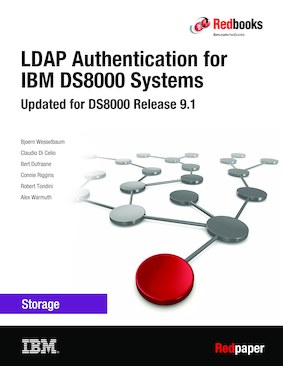About cookies on this site Our websites require some cookies to function properly (required). In addition, other cookies may be used with your consent to analyze site usage, improve the user experience and for advertising. For more information, please review your options. By visiting our website, you agree to our processing of information as described in IBM’sprivacy statement. To provide a smooth navigation, your cookie preferences will be shared across the IBM web domains listed here.
LDAP Authentication for IBM DS8000 Systems: Updated for DS8000 Release 9.1
An IBM Redpaper publication
Note: A newer draft version of this publication is available
